Trazodone For Insomnia: What You Need To Know
If you have insomnia, it’s important to know you’re not alone; there are millions of people who are also struggling with sleep. Talk about what you’re going through with others, including your doctor, and continue trying new things to help manage your insomnia.
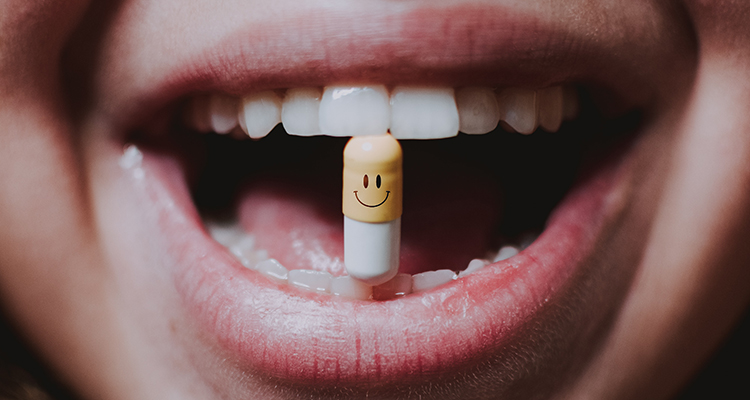
~Christina Applegate
Insomnia involves more than just not being able to fall and stay asleep throughout the night. It can impact every area of your life, from your health and well-being to your career prospects, relationships, and even self-esteem. The good news is there are tons of treatments available to help curb your insomnia so you get a good night’s rest.
Understand, however, that not all treatments have been created equally. In other words, some treatments are safer and more affordable and effective than others. Sometimes, natural sleep aids can offer you the respite you need to function at an optimal level the next day, however, if that doesn’t work, a doctor may prescribe sleeping pills to help you get some much-needed shut-eye.
One of the more controversial medications sometimes used to combat sleeplessness is trazodone, also known as their brand names: Desyrel, Molipaxin, Oleptro, Trazorel, or Trittico. Trazodone comes with serious risks and a variety of side-effects, so it is important to understand the ins-and-outs of using this potent prescription sleep aid.
If you are wondering if you should use this medication to help you get some zzz – keep reading. This article can help you decide if trazodone could offer you the relief you need.
Content
What is Trazodone?
Trazodone is an antidepressant that is typically used as sleep aid for people who have a hard time falling and staying asleep at night. The FDA originally approved trazodone in the 1960s for depression treatment. However, today, it can be legally prescribed for other ailments, even though the FDA has not granted approval for these other conditions. These conditions may include insomnia and other sleep conditions.

However, it is important to understand that trazodone can lead to overdoses and other health problems. Also keep in mind that trazodone produces a sedative or drowsy effect in the body, causing some individuals to become dependent on it. A 1984 study found that approximately 41% of trazodone users experienced sleepiness, disorientation, sluggishness, and fatigue upon waking.
Although, many users find the possible effects concerning, others actually like that this medications causes drowsiness. Moreover, trazodone may be beneficial if you can’t sleep because of depression. But, practitioners may also prescribe trazodone for people who do not suffer from depression.
Note: It is important to remember that some antidepressants can trigger insomnia.
So, if you are considering asking for or using trazadone to help you sleep at night, you may want to try less risky options first, such as a sleep program (like Somnus Therapy), melatonin, and lifestyle changes like a healthier diet, more exercise, mindful meditation, yoga, reading, etc. Natural sleep aids are not only safer, but also more effective and affordable for sleep problems.
What is Trazodone Used For?
Trazodone was originally created in 1981 to treat depression; but now it is more often used for “off-label” conditions (conditions that have not been approved by the FDA). In fact, trazodone is typically used for “sleeplessness” in severe insomniacs. But using trazodone to help you fall and stay asleep can be risky and even dangerous. Surprisingly, however, some practitioners still prescribe it to patients who can’t sleep because it causes “sleepiness” (the desired effect).
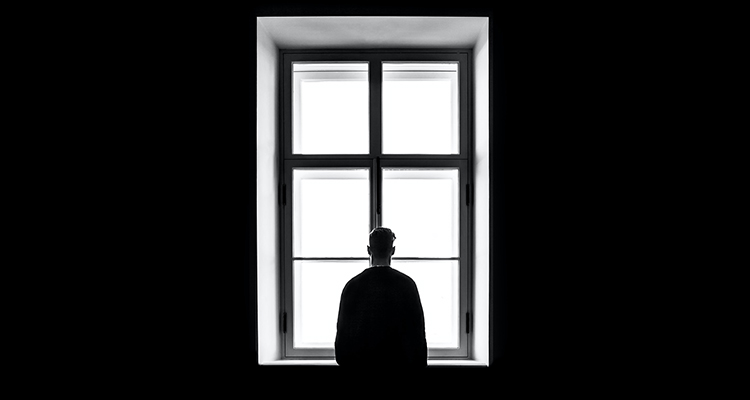
The problem is the sleepiness, sluggishness, lethargy, and grogginess doesn’t simply wear-off when morning hits. When you use trazodone, these effects linger throughout the next day, making it difficult to function (i.e. drive, work, complete tasks, etc.) at full capacity. So, even though trazodone is wrought with nasty side-effects thousands of fed-up insomniacs turn to it for relief.
What is the Typical Dosage of Trazodone for Insomnia?
The dosage for trazodone for insomnia can range between 500mg and 400mg taken once or twice a day, however, the typical dosage is usually between 25mg and 150mg taken 30-minutes before bed. Though, some studies suggest that a lower dosage may prevent daytime lethargy (sleepiness) and reduce the risk of unpleasant side-effects (i.e. depression, anxiety, etc.).
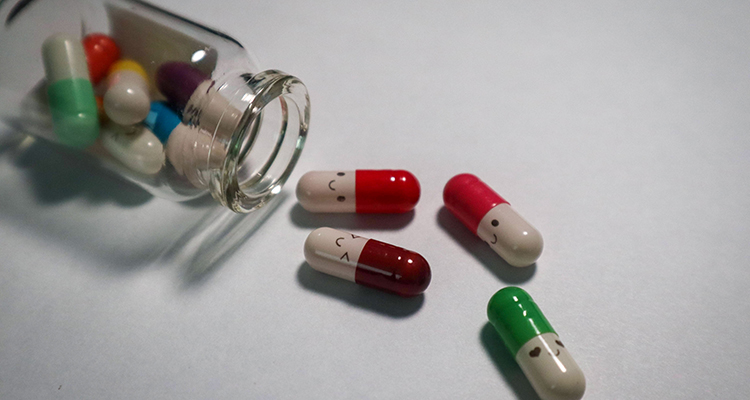
Is Trazodone FDA-Approved for Insomnia?
No.
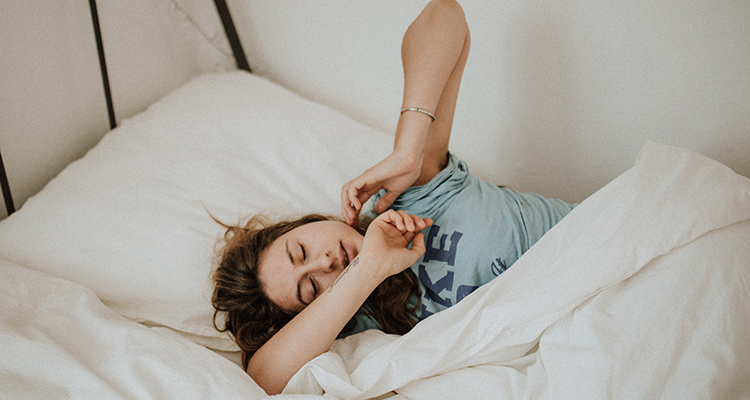
Although trazodone is FDA-approved for depression in adults, it has not been approved for insomnia. Understand that the FDA approves a medication once clinical trials have been completed and it appears to be effective for most people with specific condition. When practitioners prescribe a medication for a condition that has not been approved by the FDA, this is referred to as an “off-label” prescription.
Prescribing medications in this manner is quite common in many parts of the world. In fact, nearly 20% of prescriptions are considered “off-label.” And, guess what? There are little-to-no limitations when it comes to prescribing “off-label” medications. Most practitioners rely on their knowledge, judgement, and experience when prescribing these medications to patients.
What is the Relationship Between Trazadone and Sleep?
The exact relationship between trazadone and sleep is largely unknown at this time. However, the general consensus amongst researchers is that trazadone it inhibits serotonin production in your body by blocking the nerve cells in your brain responsible for the increase in production. What is serotonin? Serotonin, a brain messenger, helps transfer important messages to various parts of your body – messages like “relax and go to sleep.” Trazodone prevents or stops this process, causing you to feel sleepy or drowsy. That is why trazodone is the go-to sleep aid for severe insomniacs.
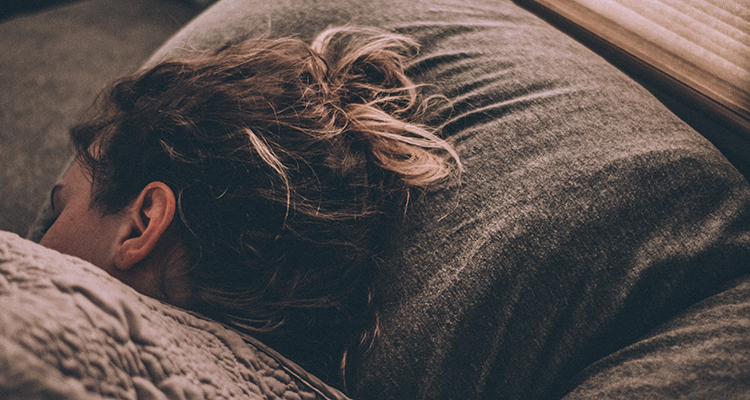
Is Trazadone Safe for Insomnia?
Yes and no.
Most medical experts do not recommend using trazodone as a sleep aid. Why not? Because this antidepressant comes with some serious health risks. Some of the harmful effects may include: a sudden weight gain, erratic fluctuations in mood, impotence or a reduced sex drive, seizures, an irregular heartbeat, and/or in some cases, death. The truth is trazodone was not designed to be a sleep aid – because of the risks, complication, and side-effects.
Thus, trazodone should only be taken for insomnia as a last resort – when nothing else has worked. And, even then it should be used cautiously – under the strict supervision of your doctor. Why? Because trazodone can cause withdrawal symptoms. As a result, it is important that you be “weaned-off” the medicine. If you stop it abruptly, you may experience withdrawal symptoms (i.e. blinding headaches, tremors, severe anxiety, paranoid, hallucinations and delusions, and panic attacks) – along with an even worse case of insomnia.
FDA WARNING: Trazodone can increase your risk of suicidal ideation (suicidal thoughts and behaviors), especially if you are clinically depressed. Keep in mind that trazodone is also not FDA-approved for depressed children.
Is Trazodone Effective?
The jury is still out.

While some experts suggest that trazodone is not an effective sleep aid (because of the side-effects and risks), others disagree and believe that it can be effective in low doses – at least temporarily. This antidepressant comes with a myriad of harmful side-effects and serious risks when used for depression. And, when used for insomnia, these effects become even more pronounced.
The good news there are a variety of safe sleep aids (i.e. sleep programs (CBT-I), supplements, mindful meditation, yoga, etc.) that can help you sleep more soundly at night. Supplements that can help you sleep better are .5HTP and melatonin. These two supplements are safer and more cost-effective for insomniacs. Sleep programs, like Somnus Therapy, are also highly effective for sleep issues, and because they are online, they are also extremely accessible and economical.
Has Trazadone Been Studied? If So, What Does the Research Say?
Yes, it has been studied and the results are mixed.

Studies on the effectiveness of trazadone on insomnia have been limited, however, current research suggests that trazodone may not be a beneficial sleep aid for some people. Still, some practitioners continue to prescribe trazodone to severe insomniacs – and in these individuals, it appears to help with sleep.
According to a 2018 study, trazodone appears to reduce insomnia or “sleeplessness” by decreasing nightly wake-ups. However, overall, trazodone does not appear to significantly alter sleep quality long-term. Thus, the American Academy of Sleep Medicine only recommends trazodone for sleep when there are no other alternatives and other sleep aids have been unsuccessful.
Similarly, another study found that trazodone should not be used as a permanent solution for chronic insomnia, but it may offer a temporary respite to those who have poor sleep quality. According to researchers, low-dose trazodone may help some insomniacs fall and stay asleep all night, however, this effect may only last for a short time. This means that you may eventually have to boost your dosage and frequency of trazodone to receive the desired effects. Because of this, trazodone may increase your risk of dependency, overdoses, or death – although this is rare.
Does Trazodone Have Any Serious Side-Effects?
Yes!
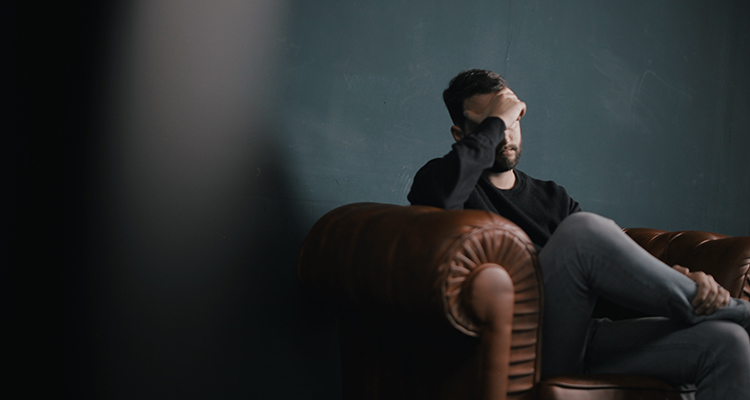
Using trazodone can cause a lot of significant health problems and dangerous side-effects. The most common side-effects include: sluggishness, mood swings, lethargy (tiredness), weight gain, nervousness and anxiety, dry mouth, drowsiness, mental confusion, and/or nausea and vomiting. Keep in mind, however, that insomniacs use trazodone because it causes lethargy and drowsiness – not despite it.
Unfortunately, many insomniacs do not realize that trazodone effects will follow them into the next day, making it difficult to complete tasks. They also do not realize that it is possible to have a trazodone overdose – one that could lead to death.
More serious side-effects can include: shortness of breath or breathing problems, seizures, elevated or irregular heart rate, low libido or sexual dysfunction, and priapism or an extended penal erection. Abruptly stopping trazadone can also lead to horrible withdrawal symptoms. And, sometimes stopping trazodone can lead to “rebound insomnia,” in which your insomnia comes raging back – worse than before.
Are There Any Benefits of Using Trazadone for Sleep Issues?
A few…
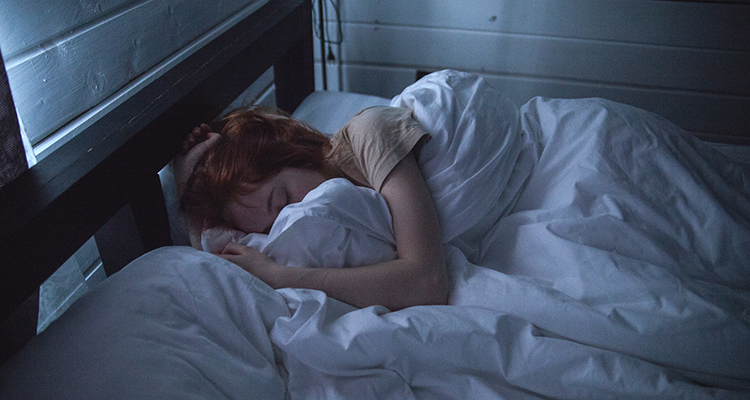
Most medical experts suggest that you try cognitive-behavioral therapy (CBT-I) and lifestyle changes (i.e. bedtime routines, yoga, mindful meditation, natural sleep programs, etc.) first if you have problems falling and staying asleep. If natural sleep aids have proven to be unsuccessful, then your doctor may prescribe stronger medications, like trazodone, to help you sleep. While this medication can be harmful or even dangerous for some, there are some benefits associated with using it.
These benefits are listed below:
- Effective – A 2017 review found that trazodone is effective for “sleeplessness” and insomnia in low doses.
- Affordable – Trazodone is more cost-effective than other prescription sleep aids.
- Safer – Trazodone is safer than other prescription sleep aids such as Valium and Xanax. And, when used correctly, it is not considered to be addictive.
- Preventive – Trazodone may help prevent or slow-down age-related cognitive decline (i.e. memory) in older adults.
- Deeper Sleep – Researchers suggest that trazodone may help improve slow-wave (deep) sleep. It may also be beneficial if you suffer from sleep apnea. Understand that some prescription sleep aids can worsen obstructive sleep apnea; however, trazodone does not appear to be one of those medications. In fact, a 2014 study found that 100mg of trazodone can have a positive effect on sleep quality – in people with sleep apnea.
What are Some Things I Should Know About Trazadone If I Decide to Use It for Sleep?
Well, if you are between the ages of 18 and 60 and use trazodone for sleep, you may experience the following side-effects:

- Dry “cotton” mouth, headaches or migraines, nausea, vomiting, constipation, diarrhea, and/or sexual dysfunction.
- Abruptly stopping trazodone can cause you to develop “discontinuation syndrome.” Symptoms of this syndrome include: anxiety, worry, or nervousness, emotional distress, and/or sleep disturbances (i.e. nightmares or night terrors). So, before you stop using trazodone, check with your doctor.
- Trazodone may increase the risk of suicidal ideation (suicidal thoughts and behavior) during the initial months of insomnia treatment.
- Trazodone can cause sleepiness or lightheadedness, impacting your ability to drive or operate machinery. So, it is important to refrain from using alcohol because it could intensify the effects of the medication.
- Trazodone can cause hyponatremia (low sodium level) and hypotension (low blood pressure). It can also cause changes in your heart function or priapism – although these effects are rare.
- Trazodone may trigger a manic episode in people with undiagnosed or untreated bipolar disorder.
- Taking too much of trazodone or taking it too frequently may lead to “serotonin syndrome.” Symptoms of this syndrome may include: mood swings, agitation, irritability, elevated heart rate, diarrhea, facial flushing, nausea, vomiting, hallucinations and delusions, tremors, muscle rigidity, and/or coma.
- It is important to avoid trazodone if you recently had a heart attack. Also let your doctor know if you have irregular heartbeats, a low immune system, an infection, or liver, kidney or heart disease.
- Using trazodone can increase your risk of bleeding and hemorrhaging, especially if used with blood thinners or have a bleeding disorder.
- Trazodone can cause “angle closure attack” in people who have an increased risk of glaucoma.
- Trazodone can cause seizures; however, this is rare.
- It is important to take immediate-acting trazodone tablets immediately after eating a meal or snack.
- It is also important to take trazodone shortly before bedtime to reduce any side-effects, such as next-day sleepiness.
- Slow-release trazodone tablets should be taken at the same time each day, either a few hours after your last meal or shortly before bedtime. This medication should be taken on an empty stomach and the tablets should be swallowed whole – not crushed or halved unless directed by your doctor.
- Initially, you may be given a lower dosage of trazodone. But, over time the dosage may increase.
- Ask your friends and loved ones to alert you or help you seek help if you begin to have suicidal ideation (suicidal thoughts and behaviors) and/or worsening depression, especially during the initial months of insomnia treatment.
- It is important to wait at least 14 days after using a monoamine oxidase inhibitor (MAOI) drug to take trazodone hydrochloride tablets.
- Ask your local pharmacist to check for drug interactions before using trazodone for sleep.
- As with any medications, if you develop a fever, sore throat, shortness of breath, elevated heart rate or signs of infection, alert your doctor.
Summary
Trazodone is not FDA-approved for insomnia, however, it is commonly prescribed as sleep aid. Some practitioners believe it is an extremely effective sleep aid for severe insomniacs, while others do not because of the risks and side-effects. Trazadone is more affordable than other sleep aids (antidepressants), so for people who exhausted and sick of not getting sound sleep, this medication can look like a promising option. One of the main benefits of trazadone is that it is non-addicting. However, if it is used incorrectly or abused, it can lead to a dependency or overdose. The good news is these possibilities are rare.

Still, it is important to understand that there are serious health risks and side-effects associated with this medication. So, even though it is possible for trazodone to provide you with some much-needed rest, it is important to research the medication and discuss the pros and cons of using it for sleep with your doctor.
References
- Brooks, D., Prothero, W., Bouras, N., Bridges, P. K., Jarman, C. M. & Ankier, S. I. (1984). Trazodone–A comparison of single night-time and divided daily dosage regimens. Psychopharmacology (Berl), 84(1), 1-4. Retrieved from https://pubmed.ncbi.nlm.nih.gov/6436874/
- University of Illinois-Chicago, Drug Information Group. (2020). Trazodone – Oral tablet. Healthline. Retrieved from https://www.healthline.com/health/trazodone-oral-tablet
- Mayo Clinic. (2021). Insomnia. Retrieved from https://www.mayoclinic.org/diseases-conditions/insomnia/symptoms-causes/syc-20355167
- Wilson, S. & Argyropoulos, S. (2005). Antidepressants and sleep: A qualitative review of the literature. Drugs, 65(7), 927-47. Retrieved from https://pubmed.ncbi.nlm.nih.gov/15892588/
- John Hopkins University. (2021). Yoga for sleep. Retrieved from https://www.hopkinsmedicine.org/health/wellness-and-prevention/yoga-for-sleep
- Mayo Clinic. (2021). Antidepressants: Get tips to cope with side effects. Retrieved from https://www.mayoclinic.org/diseases-conditions/depression/in-depth/antidepressants/art-20049305#:~:text=Some%20antidepressants%20may%20cause%20insomnia%2C%20making%20it%20difficult,food%20and%20drinks%2C%20particularly%20late%20in%20the%20day.
- Mindful. (2021). The ultimate guide to mindfulness for sleep. Retrieved from https://www.mindful.org/the-ultimate-guide-to-mindfulness-for-sleep/
- WebMD. (2021). Melatonin. Retrieved from https://www.webmd.com/vitamins/ai/ingredientmono-940/melatonin
- Somnus Therapy. (2021). Sleep therapy at home. Retrieved from https://somnustherapy.com/#Faqs-sec|1
- Agency for Healthcare Research & Quality. (2021). Off-label drugs: What you need to know. Retrieved from https://www.ahrq.gov/patients-consumers/patient-involvement/off-label-drug-usage.html
- FDA. (2018). Understanding unapproved use of approved drugs “off label.” Retrieved from https://www.fda.gov/patients/learn-about-expanded-access-and-other-treatment-options/understanding-unapproved-use-approved-drugs-label
- Fletcher, J. (2020). Can trazodone help with sleep? Medical News Today. Retrieved from https://www.medicalnewstoday.com/articles/trazodone-for-sleep
- Mukherjee, P. K. & Davey, A. (1986). Differential dosing of trazodone in elderly depressed patients: a study to investigate optimal dosing. J Int Med Res., 14(5), 279-84. Retrieved from https://pubmed.ncbi.nlm.nih.gov/3533676/
- La, A. L., Walsh, C. M., Neylan, T. C., Vossel, K. A., Yaffe, K., Krystal, A. D., Miller, B. L., & Karageorgiou, E. (2019). Long-term trazodone use and cognition: A potential therapeutic role for slow-wave sleep enhancers. J Alzheimers Dis., 67(3), 911-921. Retrieved from https://pubmed.ncbi.nlm.nih.gov/30689583/
- Cantsleep.org. (2021). Trazodone review. Retrieved from https://www.cantsleep.org/reviews/trazodone.html#:~:text=Trazodone%20is%20a%20medication%20prescribed%20to%20treat%20depression.,one%20of%20its%20primary%20side%20effects%20is%20drowsiness
- WebMD. (2021). Trazodone HCL. Retrieved from https://www.webmd.com/drugs/2/drug-11188/trazodone-oral/details#:~:text=Trazodone%20may%20cause%20a%20condition%20that%20affects%20the,dizziness%2C%20fainting%29%20that%20need%20medical%20attention%20right%20away
- Yi, X. Y., Ni, S. F., Ghadami, M. R., Meng, H. Q., Chen, M. Y., Kuang, L., Zhang, Y. Q., Zhang, L. & Zhou, X. Y. (2018). Trazodone for the treatment of insomnia: a meta-analysis of randomized placebo-controlled trials. Sleep Medicine, 45, 25-32. Retrieved from https://pubmed.ncbi.nlm.nih.gov/29680424/
- Jaffer, K. Y., Chang, T., Vanle, B., Dang, J., Steiner, A. J., Loera, N., Abdelmesseh, M., Danovitch, I., & Ishak, W. W. (2017). Trazodone for insomnia: A systematic review. Innovations in clinical neuroscience, 14(7-8), 24–34. Retrieved from https://www.ncbi.nlm.nih.gov/pmc/articles/PMC5842888/
- Newson, R. (2020). Cognitive-behavioral therapy for insomnia (CBT-I). Sleep Foundation. Retrieved from https://www.sleepfoundation.org/insomnia/treatment/cognitive-behavioral-therapy-insomnia
- Bertin, M. (2021). A 20-minute meditation for easing into sleep. Mindful. Retrieved from https://www.mindful.org/a-mindfulness-practice-for-better-sleep/
- Foley, L. (2021). How yoga can improve your sleep. Sleep Foundation. Retrieved from https://www.sleepfoundation.org/physical-activity/yoga-and-sleep
- Mayo Clinic. (2020). Priapism. Retrieved from https://www.mayoclinic.org/diseases-conditions/priapism/symptoms-causes/syc-20352005
- Drugs.com. (2021). Trazodone side-effects. Retrieved from https://www.drugs.com/sfx/trazodone-side-effects.html
- WebMD. (2021). 5-HTP. Retrieved from https://www.webmd.com/vitamins/ai/ingredientmono-794/5-htp
- Eckert, D, J., Malhotra, A., Wellman, A. & White, D. P. (2014). Trazodone increases the respiratory arousal threshold in patients with obstructive sleep apnea and a low arousal threshold. Sleep, 37(4), 811–819. Retrieved from https://doi.org/10.5665/sleep.3596
- American Sleep Association. (2021). Lifestyle changes. Retrieved from https://www.sleepassociation.org/sleep-treatments/sleep-lifestyle-changes/
- Dewald-Kaufmann, J., de Bruin, E., & Michael, G. (2019). Cognitive-behavioral therapy for insomnia (CBT-i) in school-aged children and adolescents. Sleep Med Clin., 14(2), 155-165. Retrieved from https://pubmed.ncbi.nlm.nih.gov/31029183/
- Gill, L. L. (2020). Should you take trazodone for insomnia? Consumer Health. Retrieved from https://www.consumerreports.org/insomnia/trazodone-for-insomnia-should-you-take/
- Harvard Medical School. (2011). Overcoming insomnia. Retrieved from https://www.health.harvard.edu/newsletter_article/overcoming-insomnia
- Mendelson, W. B. (200). A review of the evidence for the efficacy and safety of trazodone in insomnia. J Clin Psychiatry, 66(4), 469-76. Retrieved from https://pubmed.ncbi.nlm.nih.gov/15816789/


















